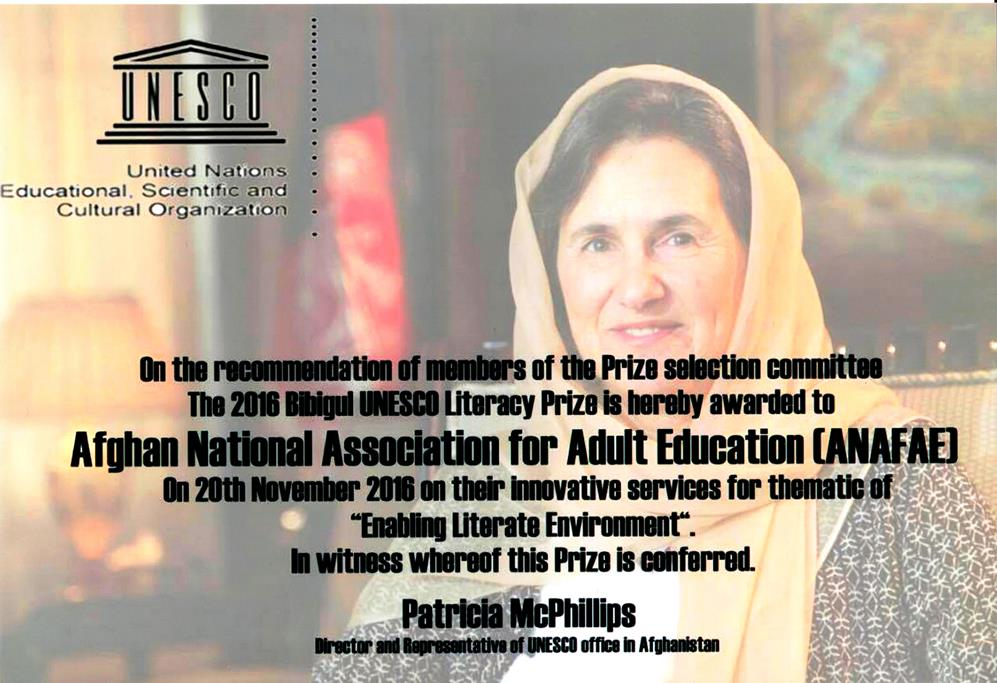ANAFAE and DVV International have been involved in Afghan literacy education as partners since 2005. DVV International has been an active player in this field since 2002. More than 25,000 learners, for the most part female, participated in the nine-month literacy education courses offered by ANAFAE and DVV International. Furthermore, as many Afghans are being forced to return from these countries, ANAFAE has recently started literacy education in settlements of refugee families returned from Iran and Pakistan.
The UNESCO Literacy Award is called “Bibi Gul Literacy Prize” after the Afghan First Lady, Bibi Gul. It was received by the Afghan National Association for Adult Education, ANAFAE and two other national NGOs on November 20. In her speech, First Lady Bibi Gul urged all Afghan men and women to learn.
Patricia McPhillips UNESCO Director for Afghanistan stated that despite tireless education efforts, 10 million people under the age of 15 years still can’t read and write well and don't have basic mathematic skills. She said that, according to the National Literacy Strategy, 34 percent of men and 18 percent of women are literatge on a low level as an average, while in rural areas, 90 percent of women and 63 percent of men can’t read and write.
The Minister for Education Assadullah Hanif Balkhi added that currently only 500,000 male and female students can be covered by literacy education courses throughout the country. According a recent assessment by the Ministry of Education conducted on grade 6 graduates, thier learning outcomes are as follows:
45% of sixth-graders cannot read fluently and comprehend a simple text after graduation,
31% cannot solve a simple math problem
13% cannot write a simple word
11% cannot read a simple word
The quality of the education system in Afghanistan is very low compared to its neighbours Pakistan, Uzbekistan or Turkmenistan. Afghanistan has the highest illiteracy rate worldwide, yet only 3.7% of the Afghan GDP is being spent on education. At the Brussels Afghanistan Conference, UNESCO and NGOs have recommended that at least 6% of Afghanistan’s GDP should be spent on education.
Over the past three years, overall expenditure in the education sector in Afghanistan has slightly increased, but specific spending in adult literacy programmes has significantly decreased (by more than one third in 2015, according to the National Literacy Department). The government of Afghanistan and donors need to immediately address the funding gap in the literacy programmes: Both should plan to double the current funds in the next four years and gradually increase the total amount of spending in the education sector.



